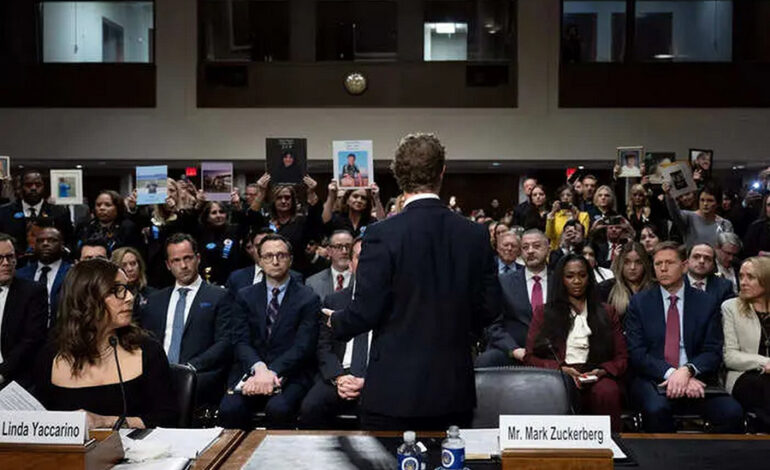Why Congressional Grilling of Tech CEOs Might Have Real Impact This Time

A Shift in Dynamics
Senator Josh Hawley’s approach to addressing issues within Big Tech often stands out for its directness, sometimes reminiscent of a “Heartbreaking: The Worst Person You Know Just Made a Great Point” moment. During a recent Senate hearing on child exploitation in social media, Hawley, a Republican from Missouri, seized a powerful moment by confronting Meta CEO Mark Zuckerberg. He compelled Zuckerberg to acknowledge a room full of grieving parents holding up photos of their teenagers who had suffered harm or died due to online exploitation—an act that underscored the gravity of the situation.
Past vs. Present
Historically, congressional hearings involving tech CEOs have often been marked by theatrical grandstanding rather than tangible outcomes. Lawmakers, often displaying a lack of technological understanding, have frequently missed the mark in their attempts to hold these executives accountable. However, the recent hearing marked a departure from the norm. Tensions have been escalating over issues of child exploitation, exacerbated by revelations from a Wall Street Journal report detailing Meta’s alleged disregard for internal research on the negative impacts of Instagram on teen girls.
Momentum for Change
The growing concern over child safety online has prompted action from various quarters. In 2023, 33 states joined forces to sue Meta, citing its detrimental effects on teenagers. Additionally, some states, like Florida, are actively working on legislation aimed at curbing teen access to social media platforms. The bipartisan support behind initiatives like the Kids Online Safety Act (KOSA) reflects a shared commitment to combating child exploitation. However, there are concerns regarding the potential ramifications of such legislation, particularly its implications for free speech and privacy rights.
The Debate Over Regulation
While there is consensus on the need to address child exploitation, there is ongoing debate surrounding the proposed regulatory measures. Efforts to reform or repeal Section 230, a rule that shields internet platforms from liability for user-generated content, have gained traction. Advocates argue that repealing this provision could empower grieving parents to hold tech companies accountable for the harm inflicted on their children. Nevertheless, concerns persist regarding the unintended consequences of such actions, including potential restrictions on online discourse and expression.
Complexity of the Issue
Addressing child exploitation in the digital realm presents a multifaceted challenge. While there is a collective desire to enhance online safety for children, devising effective solutions remains elusive. The intricate interplay of technological, legal, and ethical considerations complicates the regulatory landscape. Despite the complexities involved, the heightened attention to this issue signifies a potential turning point in the efforts to safeguard children’s well-being in the digital age.
Conclusion
The recent scrutiny of tech CEOs before Congress underscores the urgent need to address the pervasive issue of child exploitation online. While legislative proposals and regulatory measures are being considered, the path forward remains uncertain. However, the convergence of bipartisan support and public outcry signals a critical moment in the ongoing struggle to protect vulnerable users from harm in the digital realm.










